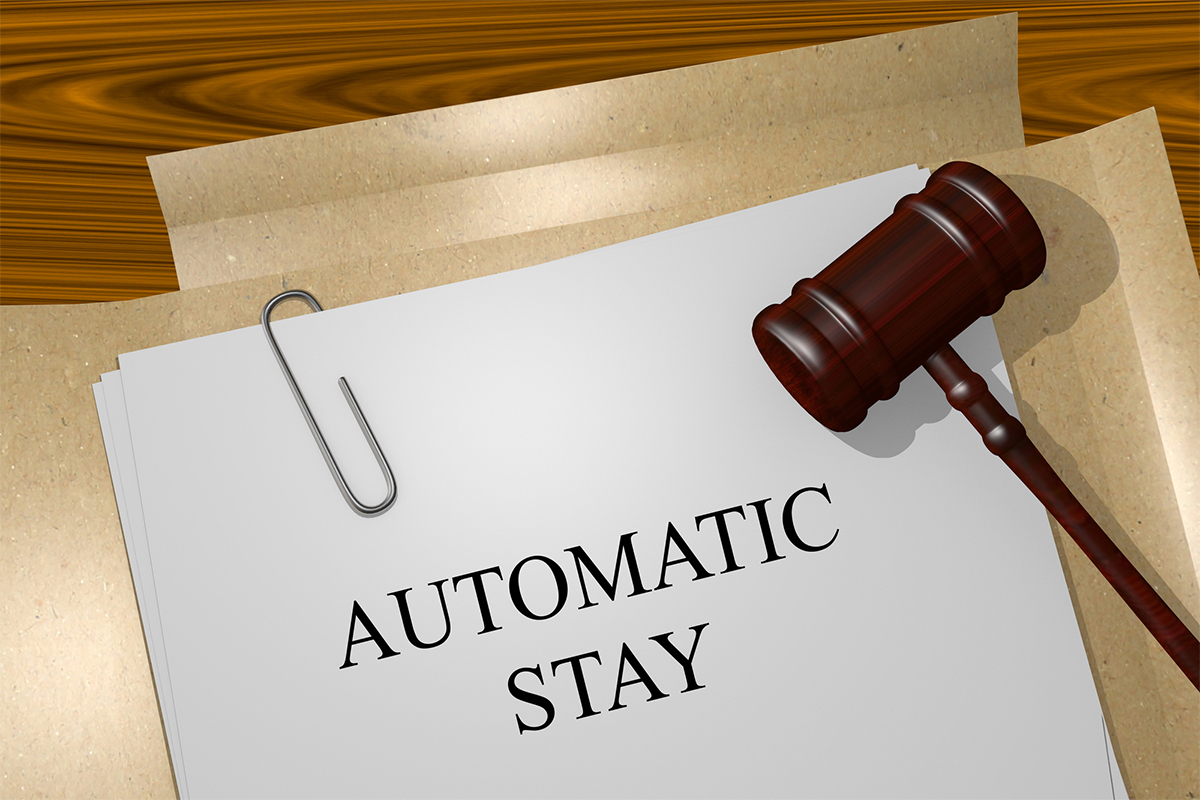Are you feeling overwhelmed by your financial situation and considering filing for bankruptcy in Warren?
By knowing the bankruptcy laws in Warren, Michigan, you can protect your assets, eliminate your debts, and get a fresh start on your financial future.
In the Eastern District of Michigan in 2023, 10,136 people filed for Chapter 7 bankruptcy, and 4,915 filed for Chapter 13 bankruptcy. [1]
Automatic Stay and Bankruptcy
An automatic stay serves as a legal injunction that prevents creditors from pursuing or continuing any debt collection efforts, including lawsuits, wage garnishments, foreclosure proceedings, repossessions, and creditor harassment.
This protection allows debtors in Warren, Michigan, to pause and regroup, providing them with a breathing space and an opportunity to work towards a fresh financial start. While the automatic stay is in effect, creditors must seek court permission to proceed with any collection actions, ensuring that debtors are shielded from further stress and financial turmoil during the bankruptcy process.

Michigan State Exemptions for Bankruptcy
In Michigan, bankruptcy filers have the option to choose between two sets of exemptions: the federal bankruptcy exemptions or the Michigan state exemptions. You cannot mix and match these exemptions; you must choose either the federal or state exemptions.
If you opt for the Michigan state exemptions, here’s what you need to know:
- Homestead Exemption: Protecting your primary residence is of utmost importance. Michigan offers a generous homestead exemption, allowing filers to protect up to $46,125 in equity.
- Motor Vehicle Exemption: In Michigan, individuals can protect up to $4,250 in equity for one motor vehicle. This exemption ensures that you can maintain reliable transportation during and after bankruptcy.
- Personal Property Exemptions: The state of Michigan recognizes various exemptions for personal property, including clothing, household goods, furnishings, appliances, books, and more, up to a total value of $4,625.
- Retirement Accounts: The state of Michigan generally allows for the protection of various retirement accounts, such as IRAs and pensions. These exemptions are essential in ensuring you have financial security during your retirement years.
- Tools of the Trade: If you rely on specific tools or equipment for your profession, Michigan offers an exemption of up to $3,075 to protect these essential tools for employment. [2]
What are the Federal Exemptions for Filing Bankruptcy?
Some of the key exemptions for federal are:
- Homestead Exemption: Under federal law, debtors can protect a certain amount of equity in their primary residence. The exemption amount is subject to change and is currently capped at $27,900.
- Personal Property Exemption: The federal exemption for personal property covers various belongings, including furniture, electronics, clothing, and household items. The current exemption amount for personal property is set at $14,872.
- Motor Vehicle Exemption: For those with a vehicle, the federal motor vehicle exemption protects the equity in your car or truck, up to $4,450. [3]
- Retirement Account Exemption: Under the federal bankruptcy exemptions, most qualified retirement accounts are protected from being seized to satisfy debts. Whether it's an Individual Retirement Account (IRA), a 401(k), or a pension plan, these accounts are shielded from creditors.

How Do I Qualify for Bankruptcy in Michigan?
One of the most commonly sought-after forms of bankruptcy is Chapter 7 bankruptcy, also known as liquidation or straight bankruptcy. To qualify for Chapter 7 bankruptcy in Michigan, you must pass the means test. This test compares your income to the median income in Michigan and determines whether or not you have enough disposable income to repay your debts.
To complete the means test, you will need to gather information about your household income from all sources for the past six months. This includes wages, rental income, child support, and any other income you receive. If your income falls below the median income for a household of your size in Michigan, you automatically pass the means test, and you may be eligible for Chapter 7 bankruptcy.
If you do not qualify for Chapter 7 bankruptcy, you may be eligible for Chapter 13 bankruptcy, which is often referred to as a debt reorganization or repayment plan. With Chapter 13 bankruptcy, you can create a plan to repay your debts over a period of three to five years based on your income and expenses.
Qualifying for Chapter 13 bankruptcy in Michigan does not require passing the means test. Instead, you must demonstrate that you have a regular income that can support your proposed repayment plan.
Your unsecured and secured debts must not exceed certain limits. Unsecured debts are typically credit card debts, medical bills, or personal loans, while secured debts are tied to assets like mortgages or car loans.
If you need help filing for bankruptcy in Warren, contact Frego & Associates today.
FAQs
While bankruptcy can provide significant relief by discharging many types of unsecured debts, such as credit card debt and medical bills, there are certain debts that cannot be wiped out through bankruptcy. Examples of non-dischargeable debts include student loans (in most cases), child support, alimony, certain tax debts, and debts resulting from fraudulent or criminal acts. It’s important to consult with a bankruptcy attorney in Warren, Michigan to understand which debts can be discharged in your specific situation.
Once you file for bankruptcy, an automatic stay is implemented, which prevents creditors from engaging in any collection actions against you. This means that lawsuits, foreclosure proceedings, wage garnishments, phone calls, and other forms of creditor harassment must cease. The automatic stay offers much-needed relief to debtors, providing them with some breathing room to evaluate their financial situation and work towards a fresh start.
If you file for Chapter 7 bankruptcy, it will remain on your credit report for ten years. If you file for Chapter 13 bankruptcy, it will typically stay on your credit report for seven years. During this time, the bankruptcy notation can have a significant impact on your credit score, making it more challenging to obtain new credit or loans. With responsible financial management and timely repayments, you can gradually rebuild your credit score even after bankruptcy.
Sources:
[1] Court Statistics – 2023 | Eastern District of Michigan | United States Bankruptcy Court. (n.d.). https://www.mieb.uscourts.gov/court-statistics-2023
[2] Protect Michigan Families from Losing their Homes and Cars in Bankruptcy. (n.d.). https://senatedems.com/irwin/wp-content/uploads/sites/19/2023/06/MI-Bankruptcy-Bill-explainer.pdf
[3] Adjustment of Certain Dollar Amounts in the Bankruptcy Code. (2022, February 4). Federal Register. https://www.federalregister.gov/documents/2022/02/04/2022-02299/adjustment-of-certain-dollar-amounts-in-the-bankruptcy-code




